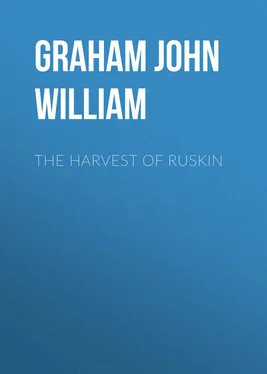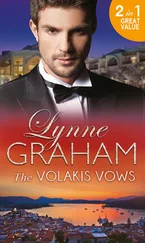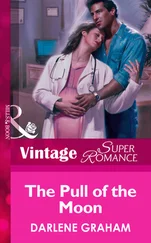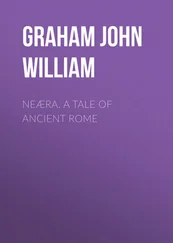John Graham - The Harvest of Ruskin
Здесь есть возможность читать онлайн «John Graham - The Harvest of Ruskin» — ознакомительный отрывок электронной книги совершенно бесплатно, а после прочтения отрывка купить полную версию. В некоторых случаях можно слушать аудио, скачать через торрент в формате fb2 и присутствует краткое содержание. Жанр: literature_19, foreign_antique, foreign_prose, на английском языке. Описание произведения, (предисловие) а так же отзывы посетителей доступны на портале библиотеки ЛибКат.
- Название:The Harvest of Ruskin
- Автор:
- Жанр:
- Год:неизвестен
- ISBN:нет данных
- Рейтинг книги:5 / 5. Голосов: 1
-
Избранное:Добавить в избранное
- Отзывы:
-
Ваша оценка:
- 100
- 1
- 2
- 3
- 4
- 5
The Harvest of Ruskin: краткое содержание, описание и аннотация
Предлагаем к чтению аннотацию, описание, краткое содержание или предисловие (зависит от того, что написал сам автор книги «The Harvest of Ruskin»). Если вы не нашли необходимую информацию о книге — напишите в комментариях, мы постараемся отыскать её.
The Harvest of Ruskin — читать онлайн ознакомительный отрывок
Ниже представлен текст книги, разбитый по страницам. Система сохранения места последней прочитанной страницы, позволяет с удобством читать онлайн бесплатно книгу «The Harvest of Ruskin», без необходимости каждый раз заново искать на чём Вы остановились. Поставьте закладку, и сможете в любой момент перейти на страницу, на которой закончили чтение.
Интервал:
Закладка:
John W. Graham
The Harvest of Ruskin
PREFACE
T HISbook is concerned with Ruskin’s teaching in the departments of Religion and Economics only, including his social reforms and educational schemes. It leaves out all his work on Art and in Natural History and Mineralogy. His thoughts on Beauty in Landscape are treated only so far as that Beauty is damaged by Industrialism or by War. Nor has any attempt been made to produce an analysis of his literary style or styles. The long extracts which the plan of the book requires, however, afford sufficient examples of his artistry in words.
My aim is to give a critical estimate in a reverent spirit of Ruskin’s teaching in these two departments, and to apply it to the needs of our own time.
The development of Ruskin’s religious faith and its final outcome have not, I believe, been fully worked out before, and the reconciliation which I have attempted in the region of Economics is long overdue. These parts of the book have been delivered as lectures in past years under the Manchester and Liverpool University Extension Committees, at Summer Schools, and elsewhere.
I am indebted to Ruskin’s literary executors for permission to quote freely from his works.
J. W. G. Dalton Hall,Manchester.CHAPTER I
THE SIGNS OF A PROPHET
N OWthat one hundred years have gone by since their one precious boy was born in London to a Scottish wine merchant and his wife, it may be well to ask how much of Ruskin’s teaching has proved to be chaff which the wind driveth away, and how much has been precious seed. Ruskin is just now suffering from the time of comparative neglect which intervenes between an author’s contemporaries and posterity, the years when the immediate appropriateness of his message may have lapsed, when it is no longer fresh and startling, but its permanent value has not yet been settled by the verdict of several generations. All or nearly all the great Victorians are in like case.
Ruskin’s art criticism is, as a matter of fact, not only ignored but resolutely rejected nowadays among critical writers. He loved beauty and charm in subject; he rejected scenes of horror and torture, and also subjects of mere Dutch commonplace. He loved delicate and accurately minute drawing, and the realistic detail of the Preraphælites. He desired that a tree in a picture should be recognized as an oak or a birch; and he loved above all fine drawing of mosses, leaves, and peacocks’ wings. This is the day of impressionism, super-impressionism and impression of impressionism, and so on, through ever greater abandonment of drawing and significance, to cubism, futurism and other weird follies. I am not wishful to dogmatize on these matters; I incline to the sage and wonderful conclusion that all styles are good provided they are good styles; that conscientiousness in the portrayal of what the artist really sees will not lead him astray; that originality, or at any rate a marked individual gift, is a necessity; and that there is no one orthodox school. As in everything else, the letter killeth, convention blocks progress, and slovenliness includes a multitude of sins.
But this book is not concerned with art criticism, but with the teaching about human duty and happiness, to which Ruskin’s art interests led him. The characteristic note he contributed to art criticism was to regard art as a revelation of God and of Man. He was a prophet of Beauty from his birth. Concerning his susceptibility in childhood to the power of natural Beauty, he writes in the third volume of Modern Painters , 1 1 Chap. xiv. § 19.
in words which throw light upon his special gifts of temperament: “Although there was no definite religious sentiment mingled with it, there was a continual perception of sanctity in the whole of Nature, from the slightest thing to the vastest; an instinctive awe, mixed with delight; an indefinable thrill, such as we sometimes imagine to indicate the presence of a disembodied spirit. I could only feel this perfectly when I was alone; and then it would often make me shiver from head to foot from the joy and fear of it, when, after being some time away from the hills, I first got to the shore of a mountain river, where the brown water circled among the pebbles, or when I first saw the swell of distant land against the sunset, or the first low broken wall covered with mountain moss. I cannot in the least describe the feeling; but I do not think this is my fault, nor that of the English language, for I am afraid no feeling is describable. If we had to explain even the sense of bodily hunger to a person who had never felt it, we should be hard put to it for words; and the joy in nature seemed to me to come of a sort of heart-hunger, satisfied with the presence of a Great and Holy Spirit. These feelings remained in their full intensity till I was eighteen or twenty, and then, as the reflective and practical power increased, and the ‘cares of the world’ gained upon me, faded gradually away, in the manner described by Wordsworth in his Intimations of Immortality .”
The fact is that we are dealing with a man who belongs to the prophetic order: and this book is written in the belief that he was not only a prophet for the nineteenth, but also for the twentieth century. He has all the prophetic signs. Right or wrong, fantastic or terribly truthful, we feel that he is coining his soul into golden words. The stress and strain of his cry against priesthoods, modern business, false teaching of economics as he thought it, wore him out, and left him subject to attacks of inflammation of the brain. Rightly he spoke of Fors Clavigera as the book of his life; “best worth calling a book,” he said, of anything he had written. With it his serious work ended in 1884. Only the chatty reminiscences of Præterita were to be written after that.
He had, besides a dreadful sincerity, another mark of the true afflatus. Never, as he pleaded, had he written a line for money or for the glory of self. It was the wrong done to Turner that drove him to write Modern Painters ; the necessity of character in a nation was the lesson he had to teach in tracing the history of Venice in her monuments; the cry of the poor, and indignation over the wrecking of humanity in the name of business, drove him to write Unto This Last , and all his social and economic works. He had the single-mindedness of the seer.
Again, he inspired love and discipleship in hearts ready for his message, as prophets do. The Master he was called, and the Master he remains. His loss was a personal loss. The event of January 20, 1900, was to many of us a real bereavement. The strong personal note which caused the prophets Isaiah and Hosea to do in their own persons emblematic acts for a sign, caused Ruskin also to tell his readers more about himself than anyone would who did not identify himself with his message. To the unseeing eye this looks like egotism, but it is far from that.
His life, too, was such as a prophet’s ought to be. He gave away the greater part of a fortune of £157,000, and some house property, and chose to do without advertising his books. In love and in the loss of love he suffered, but did nothing base, everything that was kind and true. As a prophet whose burden was wealth and poverty, social tyranny and human wreckage, he was able to speak as a rich man to members of his own class. A poor man who prophesies on this subject is apt to be discounted by blunt humanity, who think that he may be merely an envious grumbler.
And, once again, he has that characteristic of the messengers of the Truth, that their message is too new and strange to be acceptable at once to their contemporaries. They are accepted by the few: the world smiles or curses and passes by, but gradually it bends round in one of its great curves, and round its spiral path revolves as it approaches the centre of attraction. I shall try to show that much of Ruskin’s social and economic teaching is just such a centre of our constant approximation, though we are apparently always going nearly at right angles to it.
Читать дальшеИнтервал:
Закладка:
Похожие книги на «The Harvest of Ruskin»
Представляем Вашему вниманию похожие книги на «The Harvest of Ruskin» списком для выбора. Мы отобрали схожую по названию и смыслу литературу в надежде предоставить читателям больше вариантов отыскать новые, интересные, ещё непрочитанные произведения.
Обсуждение, отзывы о книге «The Harvest of Ruskin» и просто собственные мнения читателей. Оставьте ваши комментарии, напишите, что Вы думаете о произведении, его смысле или главных героях. Укажите что конкретно понравилось, а что нет, и почему Вы так считаете.












